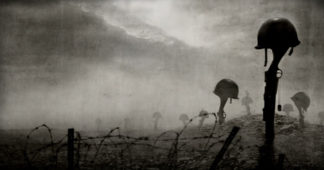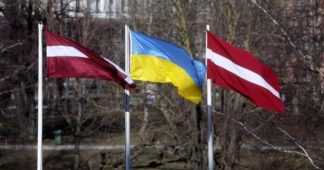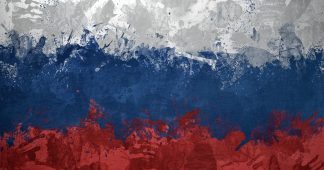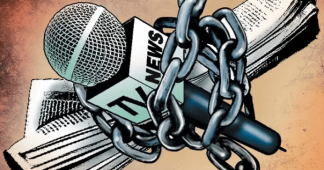By Oksana Chelysheva *
The ”Confidence Building Measures In the Face Of Sharp Polarization in Europe” roundtable at the European Parliament on March 20 (https://www.defenddemocracy.
The event was organised by Tatjana Zdanoka, an MEP representing the Latvian Russian Union, with participation of the EU Russian-speakers alliance (an association of people permanently living in the EU who consider Russian as their native language regardless of their ethnic origin, nationaliaty or religion).
The roundtable brought together people from various countries, including the ones which like Latvia are going through a difficult stage of balancing between the democratic slogans and the reality of criminal cases against journalists and opinion-influencers in dozens.
The roundtable happened to be an intense talk with participation of a number of MEPs from such countries as Ireland, Germany, Italy, the Nethlerlands, Slovakia. It goes without saying that they mostly are the MEPs free of affiliation with any political group.
Tatjana Zdanoka in her opening remark has mentioned that many participants of this roundtable had met many times before at conferences aimed at discussing the dynamics in relations between the European Union and Russia, as well as the countries of the Eastern Partnership.
Back in 2017, a declaration was adopted in which the conference participants characterized the political situation on the European continent as follows: “The ill-thought enlargement of the Union in the first decade of the century, aided by fatal illusions of the new members, has put together two Europes, with differing ideas and principles. In many cases those are not just different, but directly opposite. The modern Europe was born to overcome those divisions, which culminated in World War II. Germany, France, Italy have turned the page and shown an example of reconciliation, proposed, above all, as an Anti-Nazi durable project. The new member states, however, have no desire for such reconciliation. They have been forced to join, first, NATO, and then, the Union whose principles they do not share. They have brought with them a lot of anti-Russian revanchism and Cold War spirit, lacking connection with Anti-Nazi struggle or even openly sympathetic to Nazism”.
Tatjana Zdanoka has stated that in her country, Latvia, these sympathies for Nazism and attempts to rehabilitate the Nazis and their collaborators are the main point of state policy. According to Tatjana Zdanoka, “What is happening now on the territory of Ukraine, or more broadly – on the territory of the former Soviet Union and Eastern Europe, I think this is also an attempt by those who want revenge for the defeat in World War II. This is at the heart of everything that is happening now in Europe”.
According to Clare Daly, an Irish MEP, ”We live in the atmosphere of national animosity and refuse to admit that we are in a very critical situation in terms of challenges to our civilization”.
Greek journalist Dimitris Konstantokopulos shared his concern over the survival of the humankind. He told, ”Europe is on the way to totalitarianism which is a threat not only to our democracy but to our survival”. He sees the current situation, in which the mainstream media dictate the paths and decisions taken are extremely troubling. Thit totalitarian atmosphere “it forbids any country from getting feedback which is the only way to make corrections”.
There are some people for whom the end of Western domination seems the end of everything, and this kind of though is extremely dangerous because it can lead to the end of the world. For both Clare Daly and the Greek journalist, the ”Nord-Stream” pipeline was an attempt by pro-war forces to prevent the West and Russia from reaching any compromise. Dimitrios Konstantokopulos told: ”They are just prolonging the situation in an attempt to exaust Russia”. He reminded that the pro-war forces had been acting in a similar way in the period before the armed conflict escalated into a war after February 24, 2022, ”It was in 2021 when PM Boris Johnson authorised personally a British vessel to enter the Crimean territorial waters, betraying the presence of a ”party of war” inside western decision making centers”.
Clare Daly also made a specific point that apart from deep polarization between the EU and Russia, ”there is huge polarization among EU member states”. In her view, the ongoing war ”has just covered some of the cracks between them and that is it”. However, in Clare Daly’s view, ”the deepest polarisation is between the EU governments and their peoples”. She stated, ”The disconnect between ordinary people and the governments is as deep as never before”. By her analysis, ”the very fact that the military dimension of the EU which was not there initially was accelerated contributed to the situation with the war at the moment”. The Irish MEP is certain that ”we can not deal with polirazation until we look into how the war in Ukraine is dealt with”.
Many of the speakers raised the problems which the world peace movement is facing. Clare Daly told, ”The peace movement is the most marginalised since it has been for decades. The invasion by Russia has cornered us. The invasion as such was a huge gift for the hawks as it supported their pro-war narrative. This time the peace movement is demonised because they have failed to stop the cause of events. Thus, they decided to shoot the messenger”. At that, Clare Daly expressed her conviction that ”currently there are more openings for peace than it was before”.
Pino Kabras, a former Italian MP, supports Clare Daly’s take, ”The brand of war is supported by huge international public relations system. It mobilizes arms manufactureres and their newspapers”. He also warns about the high threat of our world to be destroyed by ourselves, ”The level of destruction can be only proportionate to the current state of technology”. He also warned that one of the major achievements of the previous years of fight for social rights, – welfare state – can be also dismantled likewise the education system. He called to ”stop escalation and prevent sleepwalking” reminding of Hiroshima and its destruction.
Marcel de Graaf, an MEP from the Netherlands, addressed such a delicate matter as trust which has been effectively ruined by years of diplomacy based on the only effort to ”buy time”. He told, ”To build trust, we have to have one thing – which is clarity about the interests of all parties and their intentions. With that comes sincerity. There is a saying: trust comes on foot but leaves on a horse. Sincerity lacks on the Western side of this conflict and it became clear after the collapse of the Minsk Agreements as they happened to be needy only to buy time to prepare for war, according to the leaders who also signed them”. A few weeks before the President Macron’s call on restoring ”the sovereignty of Europe”, Marcel de Graaf told at the roundtable, ”Europe has lost its sovereignty. It is now a vessel of the United States. This is its instrument while the NATO being the Foreign Legion of the USA”. Marcel de Graaf indentified these circumstances ”to be hazards on the way to creat trust”.
Inaki Irazabalbeitia, former MEP, now an official in a town in the Basque country, reminded of the fate of the Spanish journalist Pablo Gonzalez arrested in Poland on charges of espionage in favour of Russia just because he has two passports, of Spain and of Russia. He told, ”Pablo has been kept in Polish prison since the end of February 2022 without even a family visit. And the world sees it as something normal. No scandal. Just silence”. He is of the firm opinion that even though ”the Russian aggression is unacceptable, the militarization is not a solution”. His municipality has accepted a lot of Ukrainian war refugees. At that, he stated, ”Europe is still in shock by the war and the amount of refugees. Having welcomed the refugees, my community is for the dialogue. The only solution is to declare the ceasefire ASAP. The parties must talk. The parties must negotiate”.
Francesca Donato, an Italian MEP, expressed her appreciation with the very fact of having that discussion. She told, ”Discussing these things is one of the smartest and utmost important things we can do now”. Francesca Donato expressed her view on the aggression by Russia ”to have been their reply to a series of provocations against them”. She was also speaking of hypocricy as one of the driving forces of the contemporary politics, ”NATO was declaring they are not involved into the conflict while there are soldiers and weapons from a dozen of member states. In Italy we also have Ukrainian soldiers trained by our army. All red lines have been overstepped by the West but still Zelensky wants our total involvement which is the current deepest risk. If there is a spillover of this war to a member state, there is a risk of a global war. But it will be the end of everything while politicians undervalue this risk”. MEP Donato also shared dire concern over ecology to be threatened, ”What is a carbon footprint of nuclear weapons and of the war?”. As for a solution, she called to start ”to unmask lies”. She also told that the mainstream media propaganda is aimed at ”preventing us from talking to Russia as just an attempt would lead to us being labelled as pro-Russians”.
Dmitry de Koshko, a French journalist, shared his deep regret that nowadays being a journalist can be seen as something truly shameful: ”There is no freedom to share information as there is no longer any information.. It has been replaced by numerous PR agencies which have been pushing the agendas they have been commission to push. How any civil society can exist without information? What kind of trust can be achieved if we exist in full accordance with the norms of Orwell’s 1984 novel: a lie is a truth, war is peace, arms supplies are the path to have peace….
* Author, peace and human rights activist
We remind our readers that publication of articles on our site does not mean that we agree with what is written. Our policy is to publish anything which we consider of interest, so as to assist our readers in forming their opinions. Sometimes we even publish articles with which we totally disagree, since we believe it is important for our readers to be informed on as wide a spectrum of views as possible.










